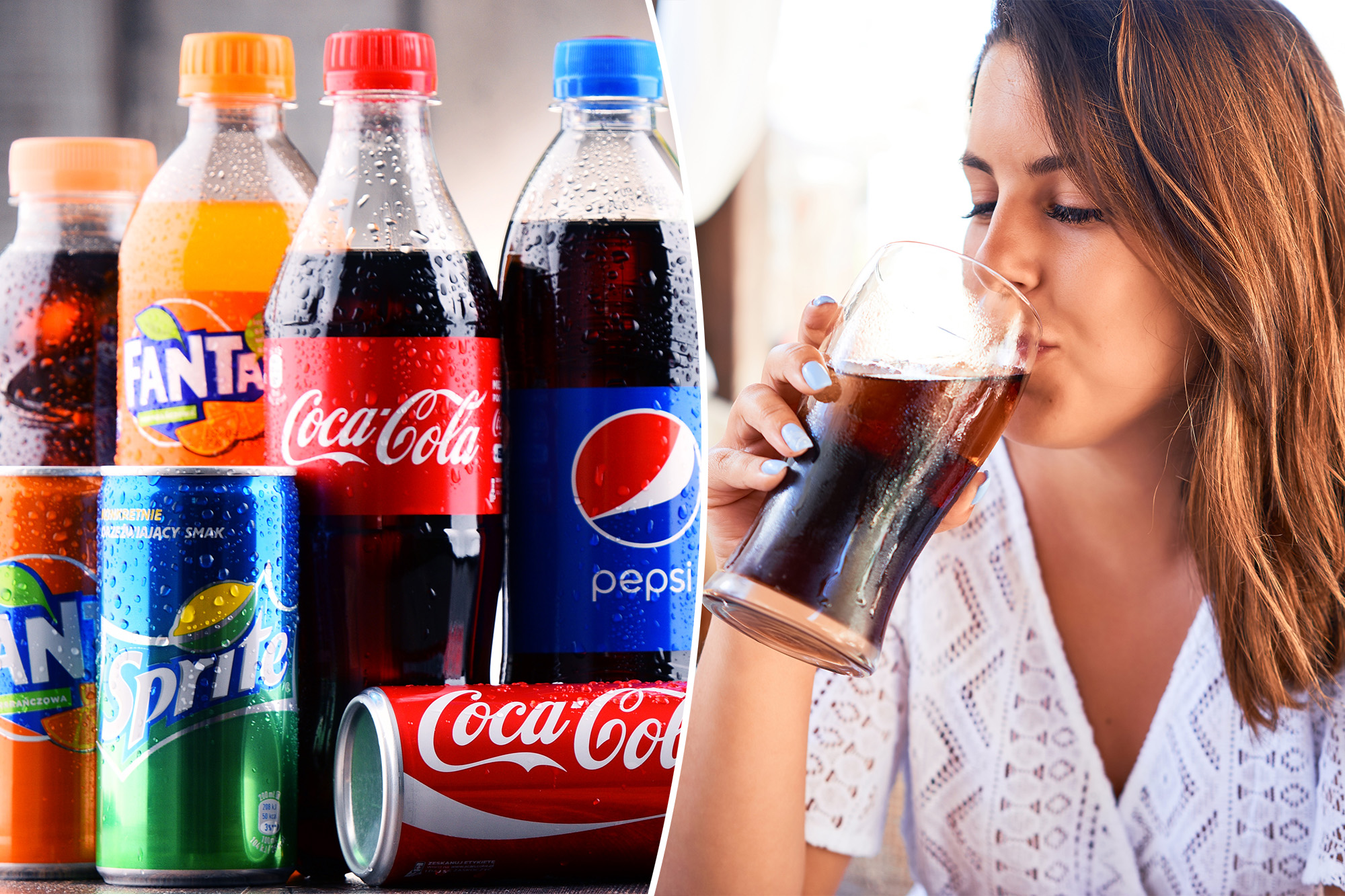You may have a soda taste, but your favorite drink is priced.
Doctors have long warned that sugar -laden drinks and regular calorie -loaded drinks can lead to problems such as bad teeth and bombed waists.
But drinking too much soda can also lead to an extremely painful medical condition that sometimes requires surgery to solve.
Brazil’s urologist, Dr. Thales Andrade, sounded the alarm after removing 35 kidney stones from the bladder of a man who fell from 2 to 3 liters of glue daily.
In a horrific Instagram video, he showed a dish full of large yellow stones while the patient was behind the operating table.
What are kidney stones?
These are hard objects that are formed in the kidneys when the substances in the urine, such as calcium, sodium, oxalate and uric acid, are balanced, according to the National Kidney Foundation.
When there are mass of these particles and they are not sufficiently liquid, they sink and crystall, creating stones.
Once formed, the stone can be kept in the kidney or start traveling through the urinary tract. Smaller stones could quietly pass to your pee, but the older ones can be hooked, making the urine a backup and trigger intense pain.
This lock also prevents the kidneys from filtering waste properly. In these cases, doctors can prescribe medications to relieve pain and help the stone pass or recommend a procedure to break it or eliminate it.
Renal calculations are common in the United States, where it is estimated that one in ten people will have one at some point in their lives. Each year, they send more than half a million Americans to the emergency room.
What are the symptoms of kidney stones?
Renal calculations can be as small as a grain of rice or as large as a golf ball. A man from Sri Lanka recently established a world record of Guinness with a stone of 1.8 pounds of the size of a pomelo.
Generally, the larger the stone, the more notable the symptoms.
Symptoms may include:
- Serious pain on both sides of the low back
- Stomach pain that does not disappear
- Blood to the urine
- Nausea or vomiting
- Fever and chill
- Urine that smells or look cloudy
Why does soda sometimes lead to kidney stones?
“Drinking soda, especially those made with fructose corn syrup, can increase uric acid levels in the body,” he told Eate This Kelsey Costa, a registered dietitian, not that! “This can cause crystals to form in the kidneys, giving rise to painful kidney stones.”
Phosphoric acid, a common ingredient in soft drinks, especially collas, also makes the kidneys more acidic, creating the perfect environment to form stones.
In addition, caffeine in many sodas acts as a diuretic, pushing for dehydration, which can also help to develop stones.
A study by the national health institutes found that people who reached one or more sodas again have a higher risk of kidney stones compared to those who drink less than one that serves the week.
Sugamed drinks such as artificial fruit stroke can also increase your risk. This is bad news for 63% of Americans who drink sugar drinks daily, according to the CDC.
Good news: Cutting helps.
In a study, the renal stone patients who resigned from the soda, specifically those who contain phosphoric acid, reduced the possibilities of developing another stone by 15%.
“To maintain proper hydration and prevent excessive soda consumption are essential measures for prevention,” Dr. Andrade said in his video. “The health of the kidneys begins with the daily options of what we drink.”
What other factors can increase your risk?
Renal calculations are more often affecting men at the age of 30 and 40, but they can hit anyone, at any age, including children, according to the Cleveland Clinic.
Dehydration increases your possibilities of stones, and also eating a lot of protein, salt, sugar or taking large doses of vitamin C supplements.
Stomach or intestine surgery can increase your risk, as are certain medicines, including some diuretics, anti -Acids based on calcium and anti -era medication.
A family story of kidney stones increases the odds of achieving.
Some medical conditions also increase the possibilities of developing stones, including cystic fibrosis, diabetes, drop, high blood pressure, intestinal inflammatory disease and obesity.
#scary #liter #drinking #toll #day #revealed #video #trouble
Image Source : nypost.com
